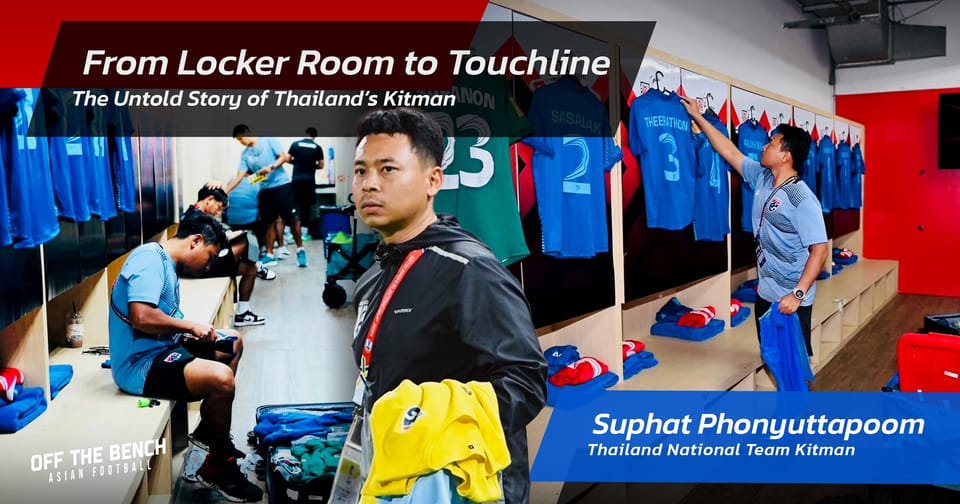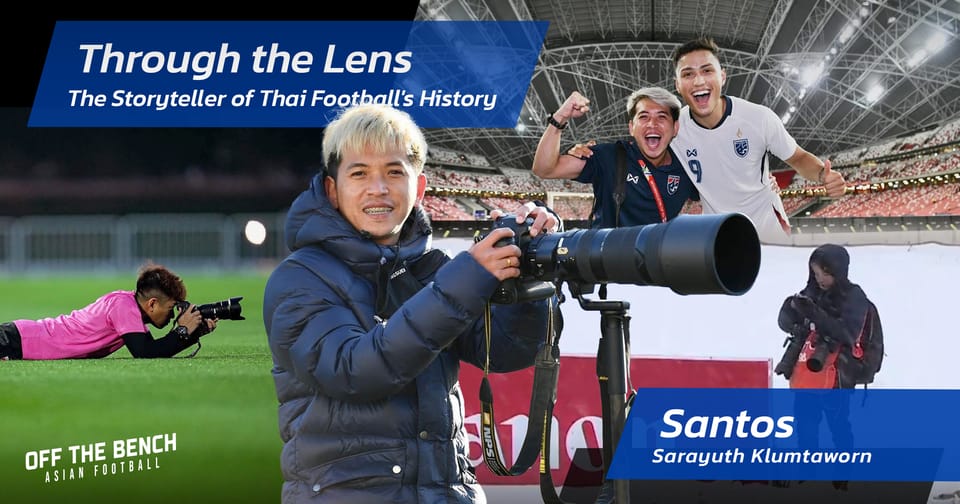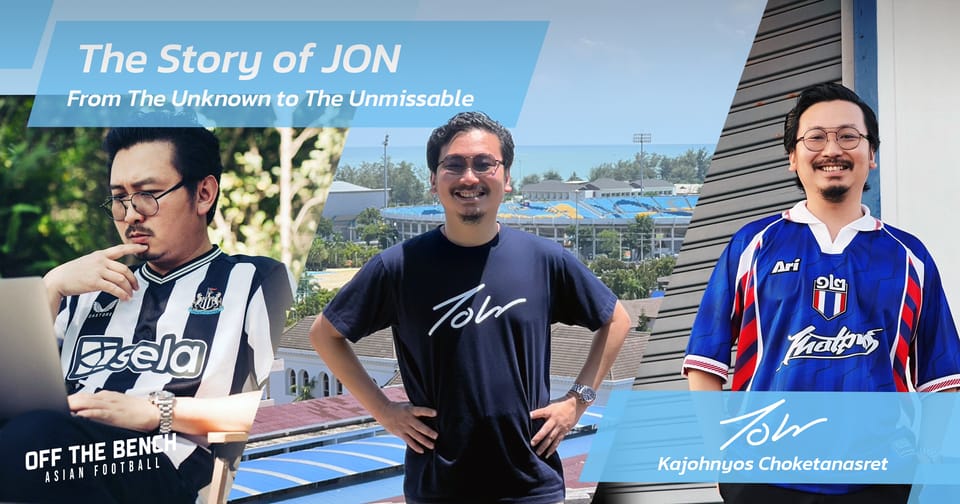From Passion to Profession (Part 1)
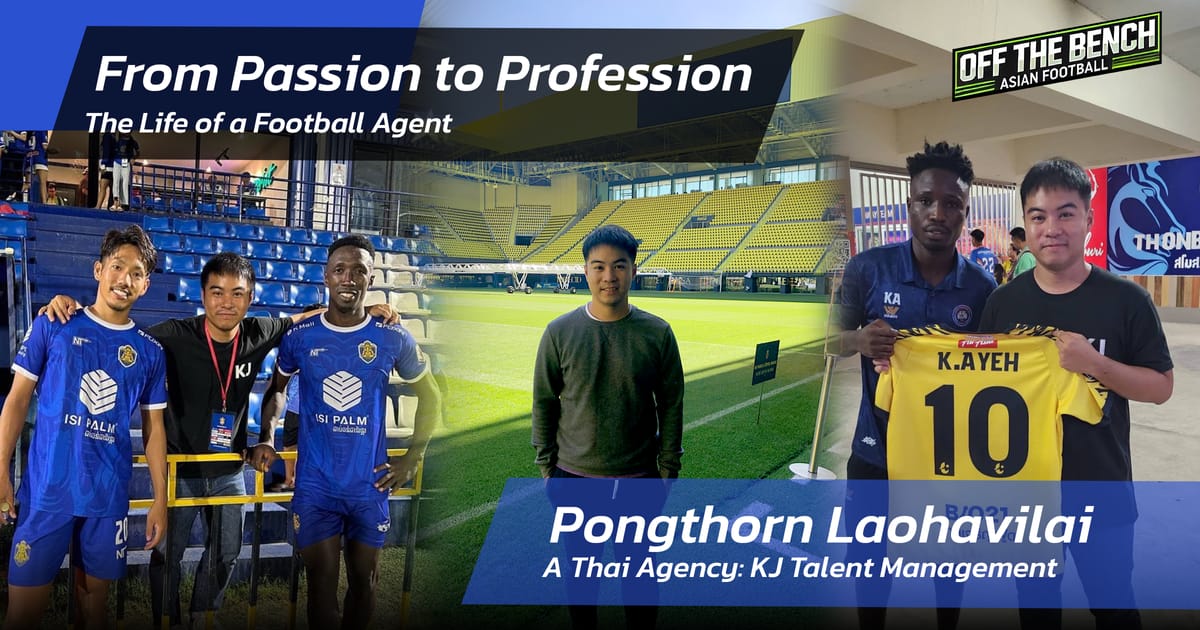
The Man Who Turned His Football Passion into a Global Business
"Kaojai" – The Football Agent Who Built His Own Path from Zero to International Success (Part 1)
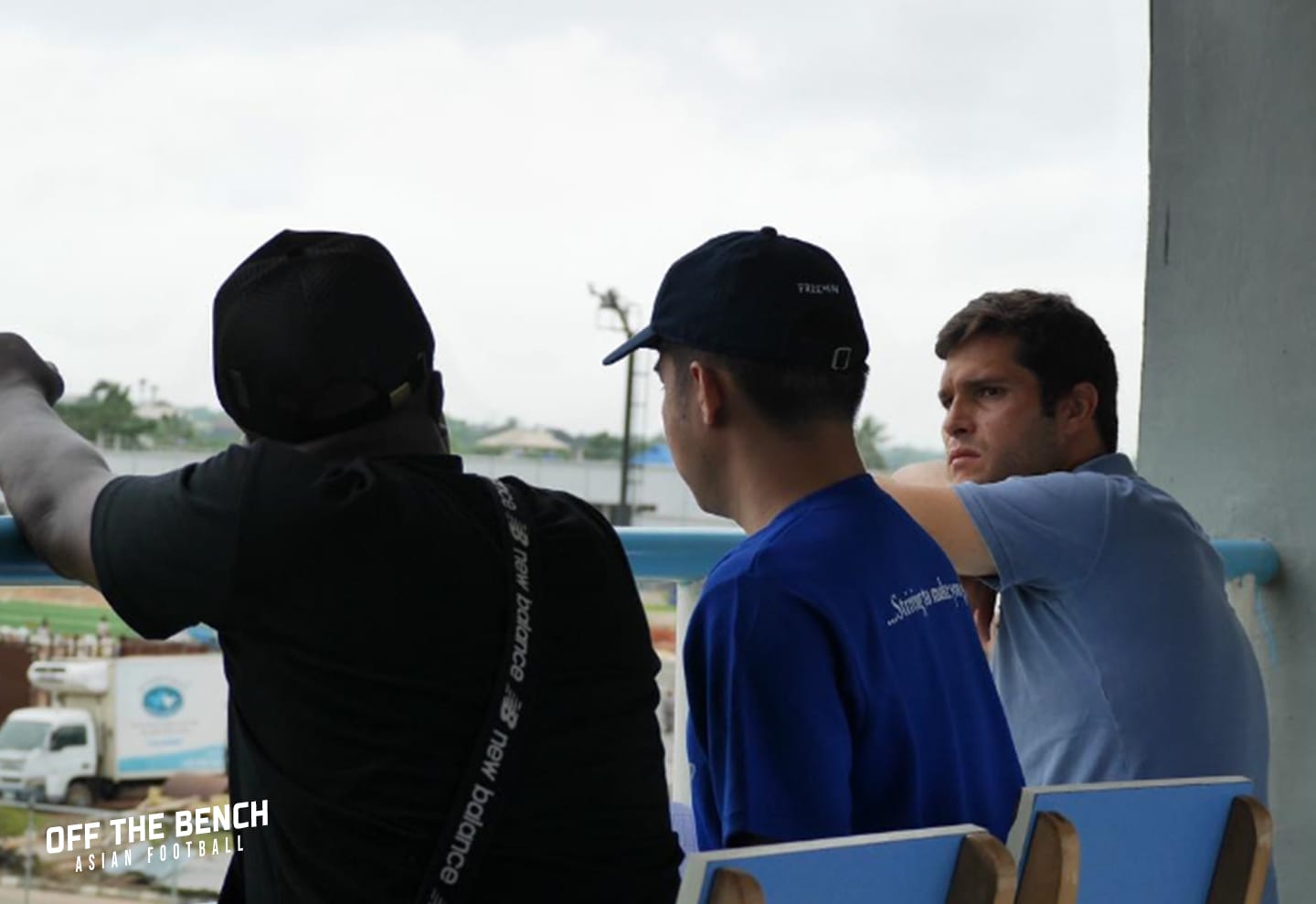
"I started from zero. I wasn't a former footballer, and I had no connections in the industry. The only thing I had was my love for football."
"Throughout my life, I’ve always set key goals—whether in business, investment, or family. And football was always one of them. But for the longest time, I never acted on it."
"I was constantly told that football is a losing business. It’s fun, but it’s a financial black hole. And since I had always been in business, I wasn’t willing to invest in something that would guarantee losses. But then COVID-19 hit. The industry I was in—travel-related business—was directly affected, and I was forced to put everything on hold. That gave me time to reflect. And all I could think about, morning till night, was football."
This is the story of a man who wanted to merge his passion with business.
Can football be a sustainable business? Can it be profitable? How do we make it work?
Instead of just wondering, Pongthorn Laohawilai, known as Kaojai, decided to find the answers by doing it himself.
The Journey to Becoming a Football Agent
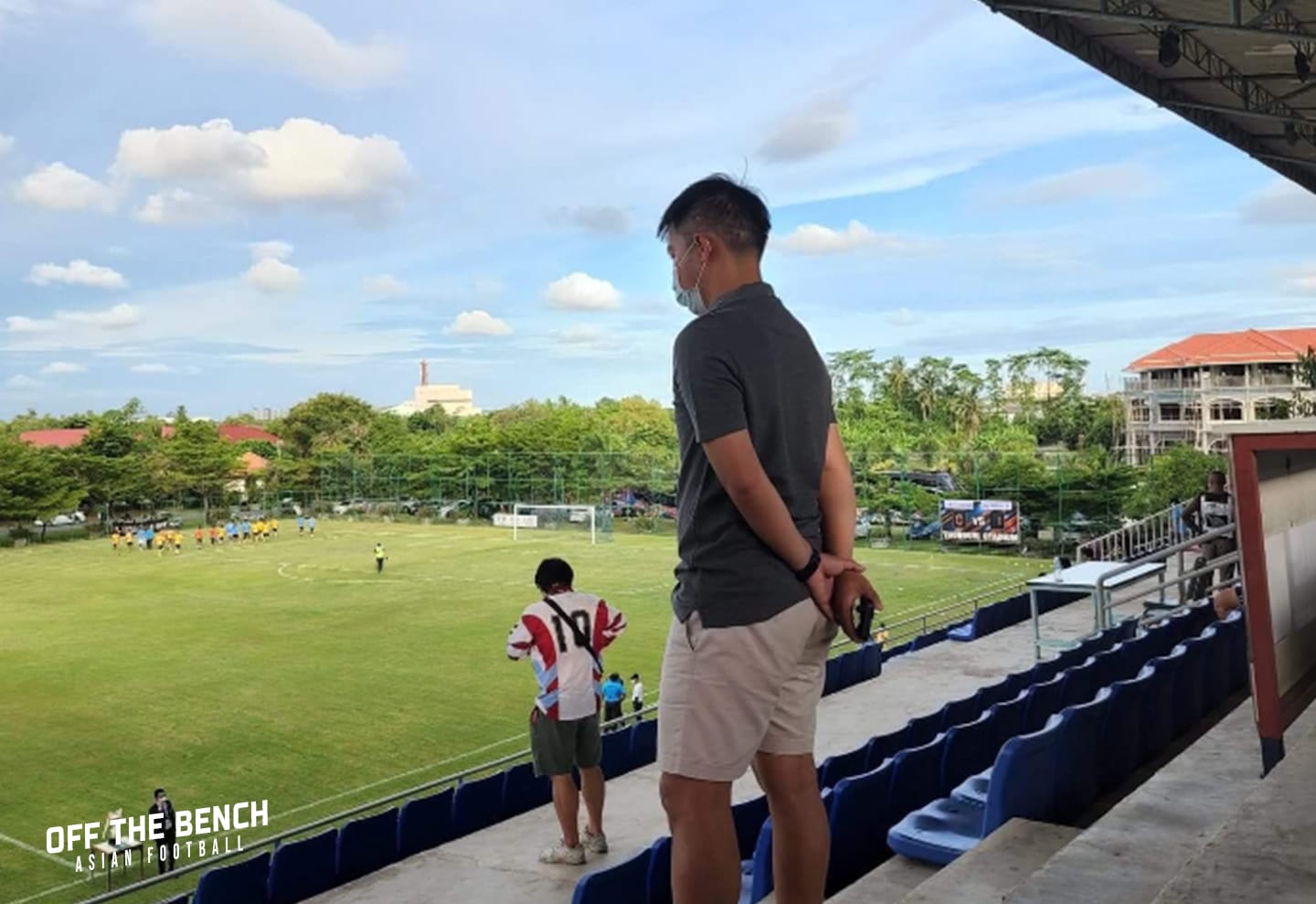
"As a kid, I was just like any other football-loving child—playing Winning Eleven, Championship Manager, Football Manager—whatever football-related content I could get my hands on. But I never made it as a professional footballer, nor did I have any friends in the industry. Football, at that time, was just a passion, not a career."
"If you had asked me back then whether I dreamed of owning a football club, the answer would have been no—it felt too far-fetched. I needed to start with something smaller, something within my reach."
Having worked in marketing and brokerage, Kaojai was skilled in client relations, sales, and negotiations—all of which, he realized, were essential for being a football agent.
"Being an agent is basically matching supply and demand. You connect the right players with the right teams, and if the deal goes through, you earn a commission. In Thailand, this profession is still relatively new, with very few full-time agents. Yet, we have over a hundred professional clubs across multiple leagues. I saw a market gap that needed filling."
With that in mind, he combined his marketing skills with his passion for football and founded KJ Talent Management in 2020.
But the road was far from easy.
"I didn’t graduate from a sports school, I didn’t have former teammates in the industry, and I had zero connections. I had no presence in the football world. The only thing I knew was that if I wanted to do business, I needed a product first."
Scouting Talent in Africa: Challenges and Lessons
KJ Talent Management’s journey started with a bold move.
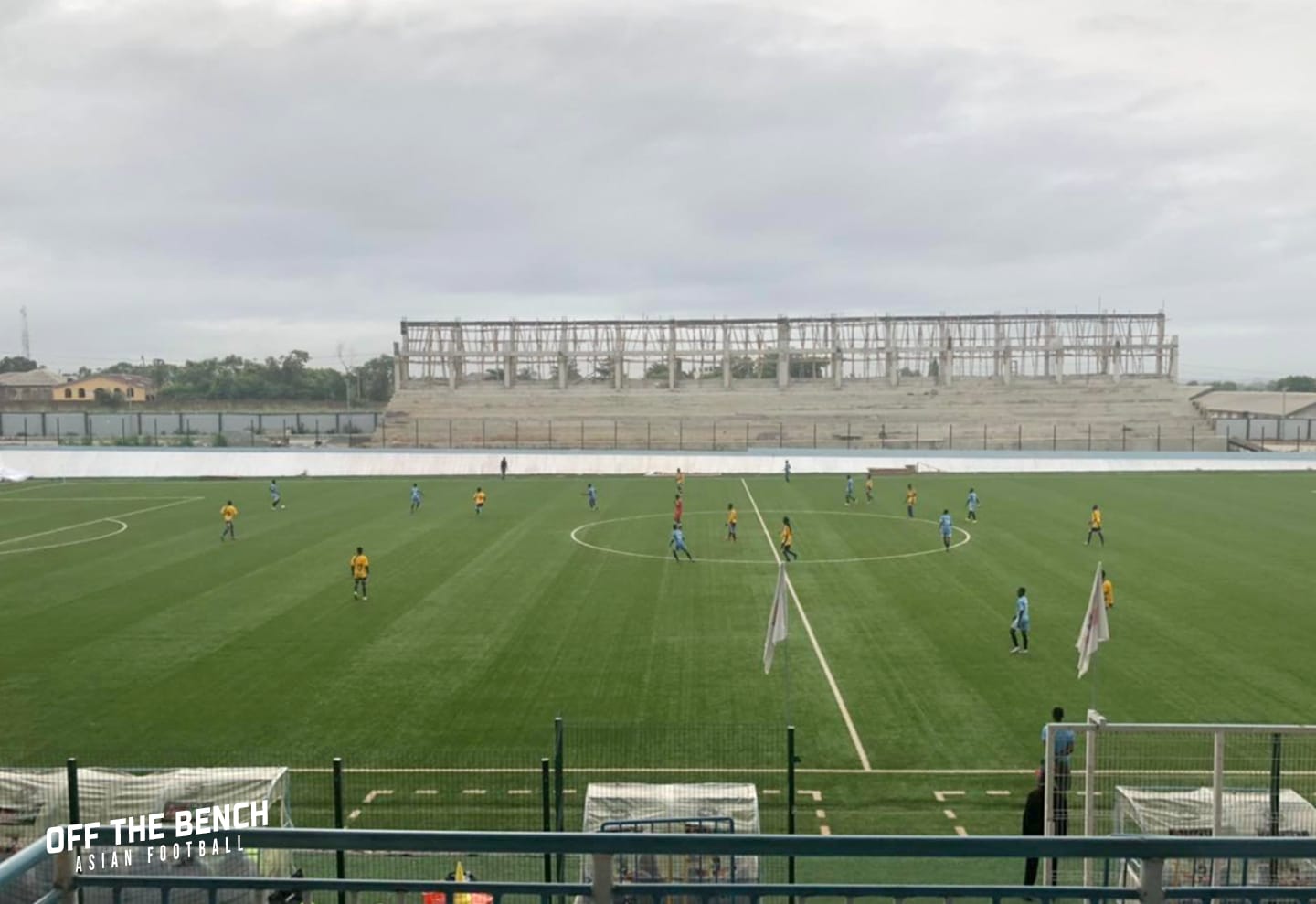
An African agency reached out, proposing to send players to Thailand. They assured Kaojai that they would cover flight tickets and accommodation while organizing trial matches for him to scout potential signings.
Intrigued, Kaojai flew to Nigeria with his wife, expecting a well-arranged scouting trip.
The reality?
"They didn’t pay for my flight. And the 'hotel' they arranged… let’s just say, it wasn’t what I expected. I ended up paying for my own hotel in the end. But at least the football side of things went as promised."
He was taken to one of Nigeria’s top football academies, an elite training ground that housed and trained hundreds of young players under Portuguese coaches.
The academy’s structure was similar to Buriram United's in Thailand—fully equipped with facilities and a systematic development program.
For ten days, Kaojai watched football from morning to night.

"They brought in players from about ten different academies across Nigeria. I had the chance to observe, evaluate, and shortlist players from multiple matches. By the final selection game, they created a team out of my picks and matched them against their academy’s all-star team."
By the end of the trip, he selected two players.
Both turned out to be great signings, prompting him to return to Nigeria the following year to scout more talent.
"It felt like I was searching for raw diamonds to be polished. I primarily focused on attacking players, as that’s where the market demand is—clubs are always looking for foreign strikers and wingers rather than defenders."
Developing a Data-Driven Approach
"I started collecting and analyzing player data, investing in professional scouting software—the same kind that top Thai clubs use."
While expensive, this tool gave him access to detailed player insights, helping him identify suitable talent without relying solely on traditional scouting networks.
But Kaojai didn’t just rely on software. He built his own scouting methodology, considering:
• Player’s past experience in Thailand (if any)
• Quota eligibility (Foreign, ASEAN, or Asian player slot?)
• Age, position, nationality, height
• Salary demands & market value
• Recent performance, including full-match footage (not just highlight reels!)
To take it a step further, he designed a scoring system to rank players based on club needs.
"For example, if a team asks for an ASEAN winger with a specific salary range, I can instantly filter my database to shortlist potential candidates."
However, data alone wasn’t enough.
He made sure to watch at least five full matches of each shortlisted player—paying close attention to:
• Overall playing style
• Decision-making under pressure
• Consistency in performance
• Injury history and fitness level
"I never recommend a player who has been inactive for six months or longer. I only work with active, match-fit players to ensure quality."
Breaking Into the Thai Market
Initially, KJ Talent Management was unknown in Thai football. To gain credibility, Kaojai cold-messaged nearly every club in Thailand, starting from lower-tier teams (T3 level).
"Smaller clubs often don’t get approached by agents, so I saw an opportunity to introduce my players there first."
Through persistence, he secured deals with clubs like Pattani FC and STK Muangnont, marking his first breakthroughs.
Once one club signed a player through him, more teams followed.
However, early on, he made the mistake of accepting every player proposal that came his way—whether it was a Japanese midfielder or a Brazilian forward.
"At first, I took every deal because I was desperate to build my reputation. But over time, I realized that quality control was key. If I wanted long-term success, I needed to ensure that every player I placed in a club was capable of performing well."
This strategy worked. Clubs began reaching out to him instead of the other way around.
But breaking into higher tiers (T2 and T1) was another challenge.
"At the top levels, the stakes are much higher. Clubs spend serious money and expect immediate success. They also have in-house scouting teams, making it harder for external agents to place players."
Another challenge? Conflicts of interest.
"If I place a player at one club, I can’t offer another player to their direct rival. Clubs don’t want their internal information leaking through an agent."
As his business grew, his goals evolved:
📌 Year 1 – "Just get a player signed anywhere."
📌 Year 2 – "Only work with clubs that pay salaries on time."
📌 Year 3 – "Focus on placing players in promotion-chasing teams, where they can shine and attract bigger opportunities."
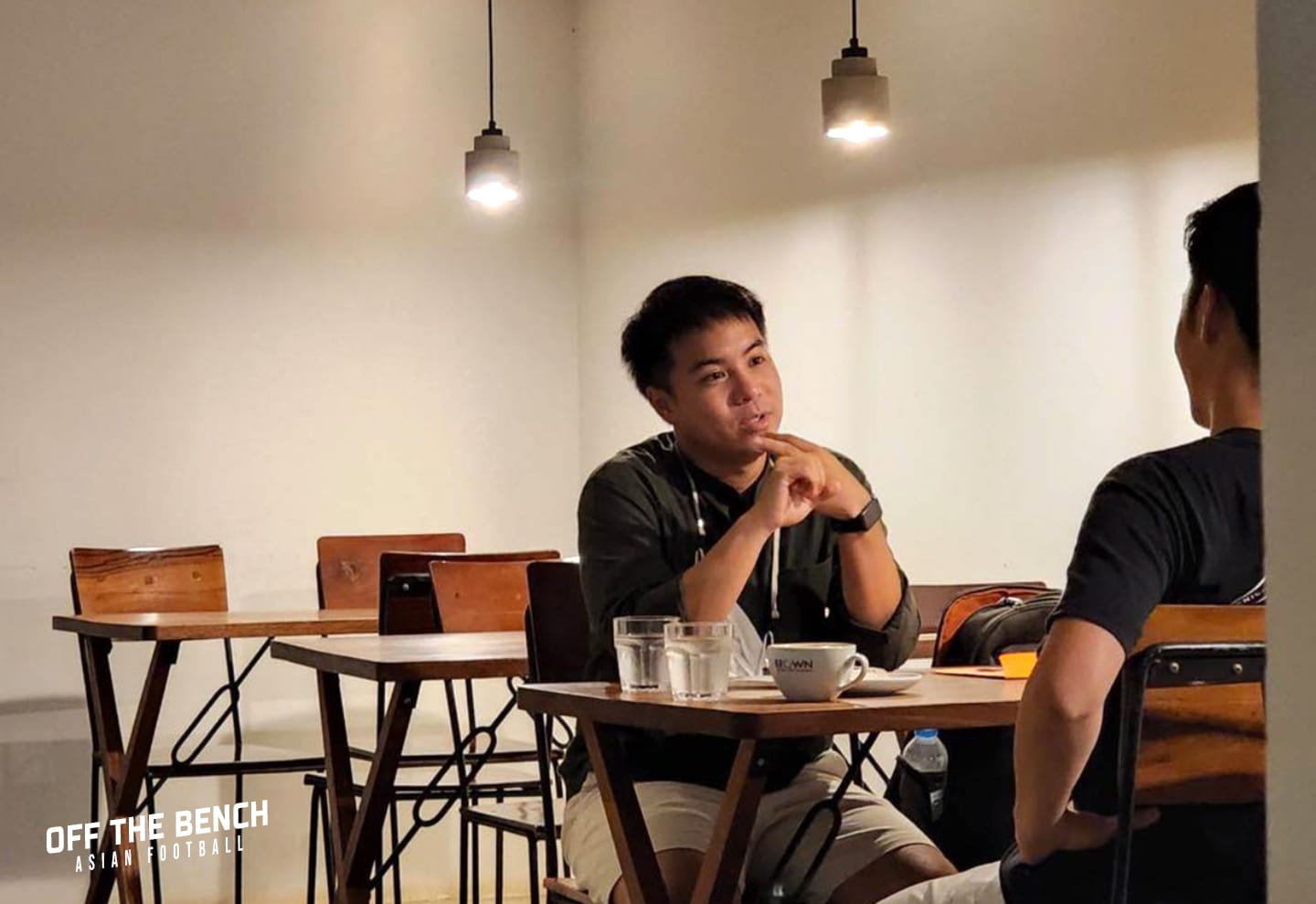
With each step forward, KJ Talent Management became a bigger name in the industry.
But this was just the beginning.
Continue to Part 2: Expanding into International Markets & The Future of Football Agency

